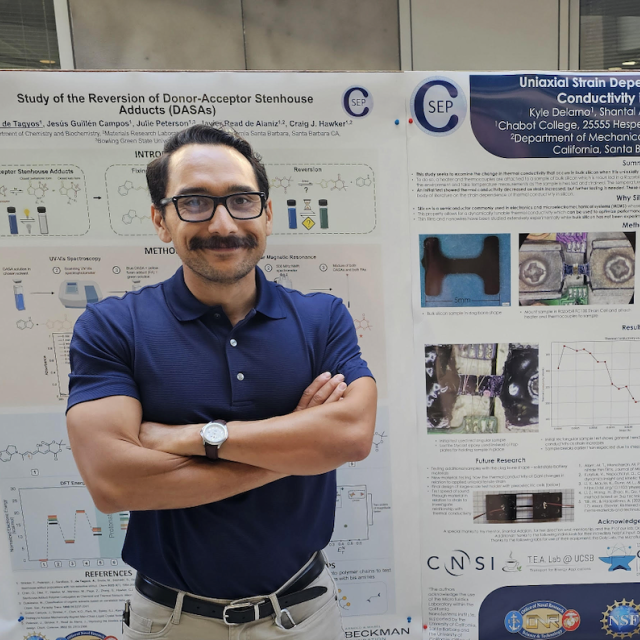
Kyle Delarno
Major: Mechanical Engineering
Mentors: Shantal Adajian, Professor Bolin Liao
UNIAXIAL STRAIN DEPENDENCE OF THERMAL CONDUCTIVITY IN BULK SILICON
Silicon is a semiconductor commonly used in electronics and microelectromechanical systems (MEMS) whose thermal conductivity has been shown through simulations to decrease with tensile strain. This property allows for a dynamically tunable thermal conductivity which can be used to optimize performance and develop improved thermal management solutions for electronics. Thin films and nanowires have been studied extensively while bulk silicon has not been experimentally supported to the same extent. This study seeks to examine the change in thermal conductivity that occurs in bulk silicon when it is uniaxially strained. To do so, a heater and thermocouples are attached to a sample of bulk silicon which is mounted in a Razorbill FC100 strain cell. It is then placed in a Physical Property Measurement System (PPMS) Dynacool to control the environment and take temperature measurements as the sample is heated and strained. The temperature measurements are used with Fourier’s Law to calculate the thermal conductivity of the sample. An initial test showed thermal conductivity decreased as strain increased, but further testing is needed. These results experimentally reinforce the findings of prior research done by simulation and add to the growing body of literature on the strain dependence of thermal conductivity in silicon.